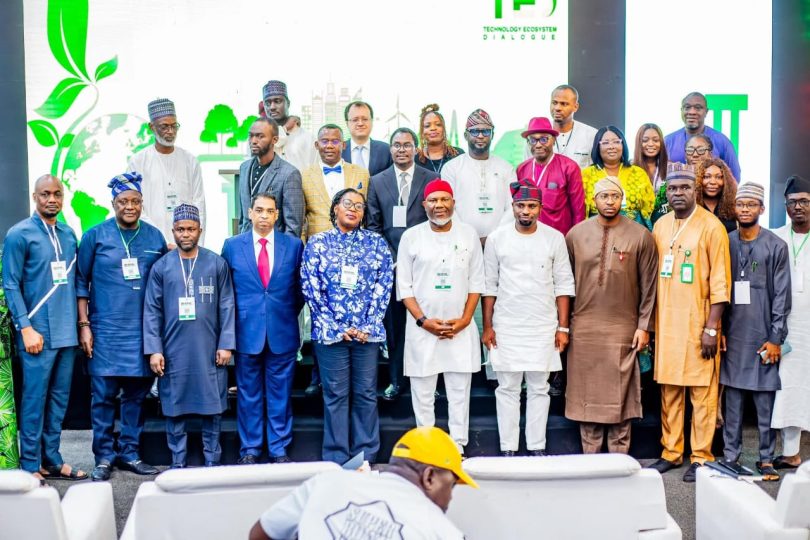The Director General of the National Information Technology Development Agency (NITDA), Kashifu Inuwa, has restated the agency’s strong resolve to drive Nigeria’s digital economy through investments in green technology and innovation.
By Chimezie Godfrey
The Director General of the National Information Technology Development Agency (NITDA), Kashifu Inuwa, has restated the agency’s strong resolve to drive Nigeria’s digital economy through investments in green technology and innovation.
Inuwa made the pledge at the 3rd Technology Ecosystem Dialogue (TED 2025), organised by the Young Innovators of Nigeria (YIN), with the theme: “Green Tech and Energy Revolution: Transforming Business and Society.”
Commending YIN for convening what he described as a “timely and visionary dialogue,” the NITDA DG praised the group’s consistency in “promoting innovation, nurturing young talent, and driving sustainable solutions vital for national development.”
“TED 2025 once again proves that Nigeria’s youth are not just the leaders of tomorrow, but the change-makers of today,” Inuwa declared, stressing the central role of young innovators in shaping Nigeria’s future.
He said the theme of the dialogue aligns directly with President Bola Ahmed Tinubu’s Renewed Hope Agenda, especially its focus on economic diversification through industrialisation, digitisation, creative arts, manufacturing, and innovation.
Highlighting NITDA’s interventions in the tech ecosystem, Inuwa listed the establishment of Technology and Innovation Hubs across the country, alongside initiatives such as iHatch, the National Innovation Challenge, IgniteHer, We Elevate, and the Renewed Hope Innovation Nest. He further pointed to partnerships advancing research and development in frontier technologies like AI, IoT, blockchain, and clean energy.
“These initiatives are designed to ensure that innovation is inclusive—reaching youth, women, and MSMEs across Nigeria—while equipping them with digital tools to create scalable solutions,” he explained.
Inuwa insisted that embracing green technology “is not optional but a necessity,” while urging government, industry, academia, and citizens to work together in building “a digital, green, and inclusive future.” He assured stakeholders that NITDA remains committed to partnerships that would enable Nigeria to lead Africa in green technology adoption for growth, jobs, and sustainable development.
Delivering the keynote address, Sustainability Expert, Dr. Krakrafaa Bestman, observed that while millions of Nigerians still lack reliable electricity, the country is richly endowed with solar, wind, hydro, and human capital resources. He emphasised that these resources offer “vast opportunities to bridge the energy gap and stimulate sustainable development.”
He outlined Nigeria’s energy transition targets, including generating 30 percent of electricity from renewable sources by 2030 and deploying 5GW of solar capacity. Dr. Bestman also highlighted initiatives such as the Nigerian Electrification Project and community-based mini-grids aimed at expanding access to rural areas.
Underscoring the importance of circular economy practices like recycling and waste-to-energy solutions, he said such innovations could reduce pollution while opening new economic opportunities. For the transition to succeed, Dr. Bestman recommended three priorities: reforms to attract investments and incentivise renewable energy adoption; greater business commitment to clean energy sourcing and partnerships; and innovations tailored to deliver safe, affordable, and locally adaptable technologies.
He, however, warned against risks associated with renewable energy systems, such as battery hazards and poorly installed solar panels, calling for strict safety standards and lifecycle management.
“Green technologies must not only drive businesses but also protect the future,” Dr. Bestman declared, urging Nigerians to embrace innovation and collaboration. “The world is waiting for Nigeria’s leadership in building a resilient and sustainable energy system.”

